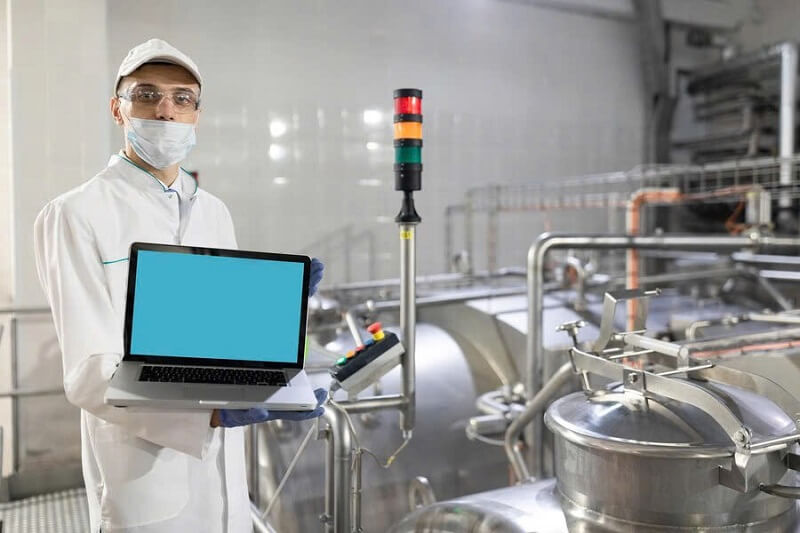QA Job Description: Key Skills and Roles in 2025
In today’s competitive job market, understanding the QA job description is essential for candidates and employers alike. This guide dives deep into the essential roles, key skills, and real-world applications that define quality assurance jobs across various industries. Let’s explore what makes a successful QA professional and how you can excel in this field.
Quality assurance (QA) professionals play a pivotal role in ensuring products and services meet the highest standards of quality and reliability. Whether it’s software, food production, pharmaceuticals, or customer support, QA teams serve as the backbone of any organization striving for excellence. This article provides a thorough breakdown of the QA job description, offering insights into key responsibilities, required skills, and real-world examples to help both job seekers and employers navigate this field effectively.
1. The Core Responsibilities of QA Professionals
At the heart of any QA role lies the mission to prevent errors, enhance processes, and uphold customer satisfaction. QA professionals meticulously analyze workflows, identify potential issues, and implement corrective measures to ensure quality benchmarks are consistently met.

For example, in a software development environment, QA engineers perform rigorous testing of applications, identifying bugs and ensuring user-friendly interfaces. Similarly, in the food industry, QA specialists monitor hygiene standards and compliance with health regulations, safeguarding consumer trust.
By understanding these responsibilities, employers can define their expectations clearly, while job seekers can align their skills to meet these demands.
1.1. Key Duties Across Industries:
Though the specifics may vary by industry, some duties are universal to QA roles:
Testing and Evaluation: QA professionals conduct comprehensive assessments to identify areas of improvement.
Process Documentation: Maintaining accurate records is crucial for tracking quality trends and addressing recurring issues.
Collaboration with Teams: From developers to production staff, QA specialists work closely with all stakeholders to ensure quality control processes are seamlessly integrated.
For instance, in a call center setting, a QA analyst reviews recorded conversations, identifying adherence to company protocols and customer satisfaction metrics. Similarly, in the pharmaceutical industry, QA teams oversee the testing of raw materials, ensuring compliance with stringent safety standards.
By mastering these tasks, QA professionals contribute to organizational success and customer loyalty.
1.2. The Growing Importance of QA in 2025
As industries evolve with technology, the role of QA professionals has become increasingly significant. Companies are under constant pressure to deliver flawless products and services while meeting tight deadlines. In this context, QA serves as a critical checkpoint, ensuring quality does not fall victim to speed.
Take the software industry as an example. Agile development cycles demand frequent testing and rapid iterations. QA engineers are now not just testers but active participants in the development process, implementing automation tools to streamline workflows. Similarly, in the food industry, QA specialists are adopting cutting-edge technologies like AI-powered quality inspections to detect minute imperfections.
This evolution underscores the importance of understanding the QA job description in its entirety. Professionals who adapt to these trends are better positioned to thrive in the competitive job market.
2. Skills That Define a Successful QA Professional
A successful QA professional possesses a unique combination of technical expertise and interpersonal skills. While technical proficiency ensures effective task execution, soft skills foster collaboration and problem-solving in diverse environments.

2.1. Technical Skills in QA
Technical skills are the backbone of any QA role. Depending on the industry, these may include:
Proficiency in Testing Tools: QA professionals in software often use tools like Selenium or JIRA to automate testing and track bugs efficiently.
Understanding of Industry Standards: In the food industry, knowledge of HACCP principles is essential, while in pharmaceuticals, familiarity with GMP guidelines is crucial.
Data Analysis and Reporting: QA specialists analyze data to identify trends, track performance, and recommend improvements.
For instance, in a software QA role, expertise in scripting languages like Python can enhance testing accuracy. In the call center sector, understanding analytics tools helps QA analysts evaluate team performance and customer satisfaction metrics effectively.
2.2. Interpersonal Skills in QA
Beyond technical acumen, interpersonal skills enable QA professionals to collaborate effectively and address challenges proactively. Key soft skills include:
Attention to Detail: QA roles demand meticulous observation to detect even minor discrepancies.
Communication: From drafting detailed reports to discussing issues with teams, effective communication is a cornerstone of QA work.
Problem-Solving: QA specialists must think critically and propose actionable solutions when issues arise.
Consider a QA professional working in a pharmaceutical company. Effective communication allows them to convey regulatory updates to production teams, ensuring compliance with safety standards. Similarly, a food QA expert’s problem-solving skills are critical when addressing supply chain inconsistencies.
2.3. Practical Application of QA Skills
Real-world examples highlight the practical importance of these skills:
In a call center, QA analysts develop scoring systems to evaluate customer interactions, fostering improvements in service delivery.
In the food industry, QA teams implement robust sampling techniques to maintain consistent product quality across batches.
In pharmaceuticals, QA professionals oversee rigorous testing protocols, ensuring life-saving medications meet safety criteria.
The ability to apply these skills practically sets exceptional QA professionals apart, making them indispensable to their organizations.
3. QA in Diverse Industries: Key Responsibilities and Examples
The QA job description varies significantly across industries, yet the core principles of quality assurance remain consistent. Let’s explore how QA professionals contribute uniquely to some of the most prominent sectors.

3.1. QA in the Software Industry
In the fast-paced world of software development, QA plays a pivotal role in ensuring functional, secure, and user-friendly applications. Responsibilities in this domain include:
Bug Detection and Reporting: QA engineers perform manual and automated testing to identify and resolve software bugs.
Usability Testing: Ensuring that applications meet user expectations and provide seamless navigation.
Continuous Integration: Collaborating with developers to incorporate real-time feedback into the software lifecycle.
For instance, a QA engineer working on a mobile banking app ensures that sensitive data is secure and that the app performs flawlessly under various conditions. Automation tools like Selenium allow them to simulate real-world scenarios efficiently, saving time while improving accuracy.
3.2. QA in the Food Industry
In the food sector, QA professionals safeguard public health and build consumer trust by ensuring products meet safety and quality standards. Their tasks include:
Monitoring Production Lines: QA specialists oversee hygiene, ingredient quality, and packaging processes.
Regulatory Compliance: Ensuring adherence to health and safety standards like HACCP and ISO 22000.
Traceability Systems: Implementing systems to track and recall products when necessary.
For example, in a dairy processing plant, QA teams perform microbial testing to ensure milk meets safety benchmarks before distribution. By maintaining these standards, they protect both the brand and its customers.
3.3. QA in the Pharmaceutical Industry
The pharmaceutical industry demands rigorous QA measures to ensure patient safety. Key responsibilities include:
Raw Material Testing: Assessing the quality of ingredients used in drug formulations.
Documentation and Auditing: Maintaining detailed records for regulatory inspections.
Batch Release: Conducting final checks before medications reach the market.
A QA specialist in this field might oversee the production of vaccines, ensuring each batch adheres to stringent quality standards. Failure to meet these standards could jeopardize lives, highlighting the critical nature of QA in this sector.
3.4. QA in Call Centers
In call centers, QA focuses on optimizing customer interactions and service delivery. Responsibilities include:
Call Monitoring: Evaluating customer service representatives’ adherence to protocols.
Performance Metrics: Analyzing data to identify training needs and improve efficiency.
Feedback Implementation: Providing actionable insights to enhance customer satisfaction.
For example, QA analysts might create a scoring system to assess communication skills and problem resolution, helping teams consistently exceed client expectations.
3.5. Trends Shaping QA Roles in 2025
Emerging technologies and changing consumer demands are reshaping QA roles across industries. Trends include:
Automation and AI: Tools like AI-driven inspection systems enhance efficiency and accuracy.
Remote QA Teams: The rise of remote work has led to QA professionals collaborating virtually, leveraging cloud-based tools.
Sustainability Focus: QA processes now incorporate eco-friendly practices, particularly in manufacturing and food production.
By staying abreast of these trends, QA professionals can future-proof their careers and continue to deliver exceptional value to their organizations.
4. Practical Steps to Excel as a QA Professional
Excelling in the quality assurance field requires a combination of skills, continuous learning, and strategic application. Whether you're entering the profession or looking to advance your career, here are actionable steps to achieve success.

4.1. Building a Strong Foundation in QA
The first step to excelling in QA is acquiring the necessary qualifications and understanding the fundamentals of the QA job description. Key areas to focus on include:
Educational Background: Most QA roles require a degree in a relevant field, such as computer science for software QA or food technology for QA in food industries.
Certifications: Professional certifications like ISTQB (for software) or HACCP (for food safety) demonstrate expertise and commitment to quality.
Internships and Entry-Level Roles: Gaining hands-on experience through internships or junior positions helps you understand real-world applications of QA principles.
For instance, a QA specialist in the pharmaceutical industry may start by assisting in quality control labs, learning essential testing protocols before moving on to more complex responsibilities. Additionally, understanding the recruitment process can help QA candidates identify roles that align with their expertise, ensuring a smoother transition into the field.
4.2. Mastering Tools and Technologies
Technology is at the heart of modern QA practices. Mastering relevant tools and technologies not only enhances efficiency but also opens doors to advanced roles. Essential tools include:
Automation Software: Tools like Selenium and Appium streamline testing processes for software QA.
Data Analytics Platforms: QA analysts in call centers or manufacturing use analytics tools to track performance metrics and identify trends.
Industry-Specific Tools: For instance, QA specialists in food industries may utilize temperature monitoring systems to ensure product integrity.
By staying updated on the latest tools, you can increase your value as a QA professional and improve your team's performance.
4.3. Enhancing Communication and Collaboration Skills
As QA often involves working with cross-functional teams, strong communication and collaboration skills are essential. Ways to enhance these skills include:
Regular Feedback: Actively seek and provide constructive feedback to improve workflows and build stronger teams.
Clear Documentation: Ensure that your reports are comprehensive yet concise, making it easier for stakeholders to act on findings.
Active Participation: Engage in team meetings and discussions to share insights and learn from others.
Consider a QA engineer in software development collaborating with developers to resolve a critical bug. Clear communication ensures swift resolution, saving time and resources while enhancing the end product.
5. Challenges and Solutions in QA Roles
Despite its critical importance, quality assurance comes with its own set of challenges. Addressing these effectively is key to maintaining high standards and advancing your career.

5.1. Common Challenges in QA
Some of the most pressing challenges faced by QA professionals include:
Tight Deadlines: Balancing quality with speed in fast-paced industries like software development.
Evolving Standards: Keeping up with regulatory changes in fields like pharmaceuticals or food safety.
Limited Resources: Managing QA processes with constrained budgets or manpower.
For example, in a call center, QA analysts may struggle to monitor all interactions due to high call volumes. One way to address this is by incorporating behavioral interview questions during hiring to ensure candidates possess the critical thinking and adaptability needed for the role. Similarly, a food QA team may face challenges ensuring compliance across an extensive supply chain.
5.2. Effective Solutions for QA Professionals
Overcoming these challenges requires a proactive and strategic approach:
Embrace Automation: Leverage tools to reduce manual workloads and improve efficiency.
Continuous Education: Stay updated on industry trends and evolving standards through workshops, courses, and certifications.
Efficient Resource Management: Prioritize tasks and focus on high-impact areas to maximize resource utilization.
In the pharmaceutical industry, for instance, adopting automated testing systems can significantly enhance accuracy and compliance, addressing both resource limitations and regulatory demands.
6. The Future of QA: Trends to Watch
As industries continue to evolve, the role of QA professionals is also undergoing significant transformations. Staying ahead of these trends is essential for long-term success in the field.
6.1. Integration of Artificial Intelligence in QA
AI and machine learning are revolutionizing QA processes by automating repetitive tasks and enhancing decision-making. Examples of AI integration include:
Defect Prediction: AI algorithms analyze historical data to predict potential issues before they occur.
Automated Testing: Tools like TestComplete use AI to execute complex test cases, reducing manual intervention.
Enhanced Quality Inspections: In manufacturing, AI-powered cameras detect defects with unparalleled precision.
For instance, a QA engineer in the automotive industry might use AI to assess assembly line performance, identifying inefficiencies that human inspectors could miss.
6.2. The Rise of Remote QA Teams
The global shift toward remote work has extended to QA roles. Companies are increasingly hiring remote QA professionals, leveraging cloud-based tools for collaboration. Key benefits include:
Access to Global Talent: Organizations can hire top QA talent regardless of location.
Flexibility and Scalability: Remote teams can adapt quickly to changing project requirements.
For example, a software QA team may use platforms like Jira and Slack to coordinate testing efforts across multiple time zones, ensuring seamless collaboration and timely delivery.
6.3. Sustainability and Green Practices in QA
Sustainability is becoming a priority across industries, and QA plays a critical role in implementing eco-friendly practices. This includes:
Energy-Efficient Testing: Reducing energy consumption during testing processes.
Sustainable Packaging: Ensuring that materials used meet environmental standards.
Waste Reduction: Implementing quality checks to minimize product defects and waste.
In the food industry, for instance, QA teams are now tasked with verifying that supply chains adhere to sustainable practices, reflecting consumers’ growing demand for environmentally responsible products.
Conclusion: Unlocking the Potential of QA Roles
The QA job description encompasses a diverse range of responsibilities, skills, and industries, making it a dynamic and rewarding career choice. From ensuring the reliability of software applications to safeguarding public health in food and pharmaceuticals, QA professionals are indispensable in today’s world.
To excel in this field, aspiring professionals should focus on building strong technical and interpersonal skills, staying updated on industry trends, and embracing innovative technologies like AI and automation. Employers, on the other hand, must recognize the strategic value of QA teams and invest in their development.
As we look to the future, the role of QA will continue to expand, driven by advancements in technology and an increasing emphasis on sustainability. By understanding and adapting to these changes, both job seekers and organizations can harness the full potential of quality assurance, ensuring success in the years to come.
Embrace the opportunities within the QA job description, and position yourself for a thriving career in this essential field.
- Essential Job Description Supervisor Guide for Success
- Essential Job Description Sales Guide for Success
- Job Description Restaurant Manager – Roles & Skills
- Understanding the job description project coordinator role
- Job Description HR Assistant—Roles and Responsibilities
- Essential Guide to Job Description COO
- Comprehensive Job Description Admin Assistant Insights
- A Comprehensive and In-Depth Job Description for HR Generalist
- Comprehensive Guide: Job Description Executive Chef
- Top 5 Best Job Search Sites for Easy Job Applications
- QA Job Description: Key Skills and Roles in 2025
- The Complete Clerk Job Description Guide
- What Is Your Greatest Weakness? Mastering the Answer
- Master the Phone Interview for Career Success
- Crafting the Perfect CV Personal Statement
- What is a Job Description Warehouse Worker?
- Detailed job description teller bank for career growth
- Comprehensive Job Description Store Manager Guide
- Comprehensive Guide to Job Description Personal Assistant
- Comprehensive Guide to Job Description Nursing Assistant
- Comprehensive Job Description Graphic Designer Guide
- Comprehensive Job Description Chief of Staff Guide
- Comprehensive Job Description Cleaner Guide
- Comprehensive Job Description Assistant Manager
- Comprehensive Guide to Job Description Account Executive
- Comprehensive Guide to Secretary Job Description
- Comprehensive Job Description of Teaching Assistant
- Comprehensive Job Description for a Social Media Manager
- Mastering STAR Interview Techniques: The Ultimate Guide
- “I Hate My Job” – What You Should Do Next
- What Is a Job Description Team Leader?
- A Complete Guide to Job Description Sales Assistant
- Comprehensive Job Description for Security Guards
- Detailed Job Description for HR Manager
- The Ultimate Guide to Job Description Medical Assistant
- Job Description Housekeeping: Key Roles & Responsibilities
- Job Description Merchandiser: Key Roles & Skills
- Job Description Product Manager: Roles and Responsibilities
- Job Description Account Manager: Roles and Responsibilities
- Job Description Marketing Manager: Roles & Skills
- Job Description HR: The Essential Guide for HR Professionals
- Best Jobs for Introverts: Top Careers for Quiet Thinkers
- What is Your Greatest Strength? How to Answer Effectively
- Job Description Data Entry Guide
- Detailed Job Description Sales Manager Guide
- The Importance of Work Experience on a Resume
- Comprehensive Job Description Sales Representative Insights
- Comprehensive Job Description of Project Manager
- Job Description Executive Assistant: Key Responsibilities
- Job Description for Sales Executive: Key Roles and Skills
- Job Description Customer Service Roles
- Job Description Business Analyst: Roles and Skills
- Comprehensive Job Description for a Receptionist
- Mastering the Sales Associate Job Description
- Understanding Accountant Job Description in Detail
- Hard Skills vs Soft Skills: Key Differences and Examples
- Why Do You Want to Work Here? Best Answer and Examples
- How to Decline a Job Offer Politely and Gracefully
- Comprehensive Job Description of Waitress
- Job Description Cashier: Key Responsibilities and Skills
- Where Do You See Yourself in 5 Years?
- Mastering Problem Solving Skills for Career Success
- Effective Job Description Sample Guide
- Behavioral Interview Questions Guide
- Comprehensive Job Description for an Administrative Assistant
- Essential Job Titles for Career Success
- Master Leadership Skills for Effective Management
- How to Write a Perfect Motivational Letter
- CV vs Resume: Understanding the Key Differences
- Top Reasons for Leaving a Job Today
- What Is a Resignation Letter? Key Details You Must Know
- How to Write a Perfect Job Application
